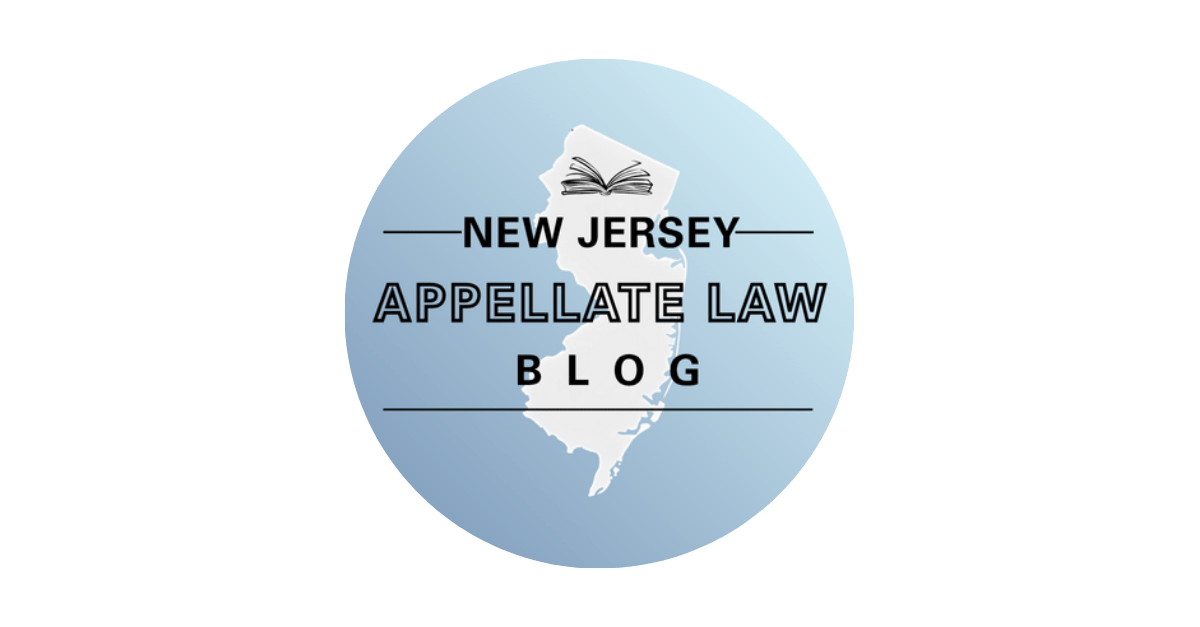The first two published opinions of the Appellate Division in the 2024-25 Term are by Chief Judge Sumners. Both are Family Part matters.
State in the Interest of M.P., ___ N.J. Super. ___ (App. Div. 2024). M.P. took a loaded gun to school, for which he was arrested. There was no evidence that he threatened or harmed anyone with the gun. He pled guilty to an offense that, if committed by an adult, constituted second degree unlawful possession of a handgun. He was sentenced to two years’ probation.
Thereafter, the prosecutor’s office issued a press release about the case that included “M.P.’s name, school, hometown, offense, and disposition.” Multiple media outlets picked up the story and published about it, including his delinquency and his name, on the internet. The press release was taken down after the trial court was notified about it.
M.P. sought an order that his name “be withheld from the public and the reporting media outlets ‘delete’ his name from their published articles.” That application centered on N.J.S.A. 2A:4A-60(f) and whether disclosure of his name caused him “substantial likelihood” of “specific and
extraordinary harm.”
The Law Division applied the test laid out in State in the Interest of K.B., 304 N.J. Super. 628 (App. Div. 1997). There, the court required a showing of harm specific to their individual circumstances. The Law Division held that M.P. had not made that showing because, as Chief Judge Sumners summarized, “M.P.’s concerns were reasonable consequences borne by all juveniles adjudicated of committing serious offenses.” The panel agreed with that result under the K.B. test.
However, M.P. asked the Appellate Division to reconsider the K.B. standard because, in the interim, the internet has become a vehicle for speedy and expansive dissemination of information that was not the case in 1997. Chief Judge Sumners was “not oblivious to the exponential growth and influence of the Internet since K.B.” But balancing between aiding and rehabilitating juvenile offenders on the one hand and informing the public about serious adjudications on the other hand is “a legislative prerogative,” not an issue for this Appellate Division panel.
New Jersey Division of Child Protection & Permanency v. C.R.A.G., ___ N.J. Super, ___ (App. Div. 2024). In this opinion, issued today, Chief Judge Sumners addressed an appeal by a husband and wife (“Rick” and “Cynthia”) from a finding that they had abused a two-year old child (“Michael”) who, though not related to them, was under their care. The panel reversed in a lengthy opinion.
Chief Judge Sumners explained that “[a]s to Rick, we conclude the family court did not have jurisdiction over him because there was insufficient evidence that he was Michael’s guardian under Title 9. As to Cynthia, we conclude the family court had jurisdiction over her because there was sufficient evidence that she was Michael’s guardian under Title 9, but there was insufficient evidence that she caused Michael actual harm and/or placed her children at risk of imminent harm.” The Chief Judge recognized that “abuse and neglect cases are fact-sensitive,” and the panel’s opinion reflects that fact-sensitive nature.

